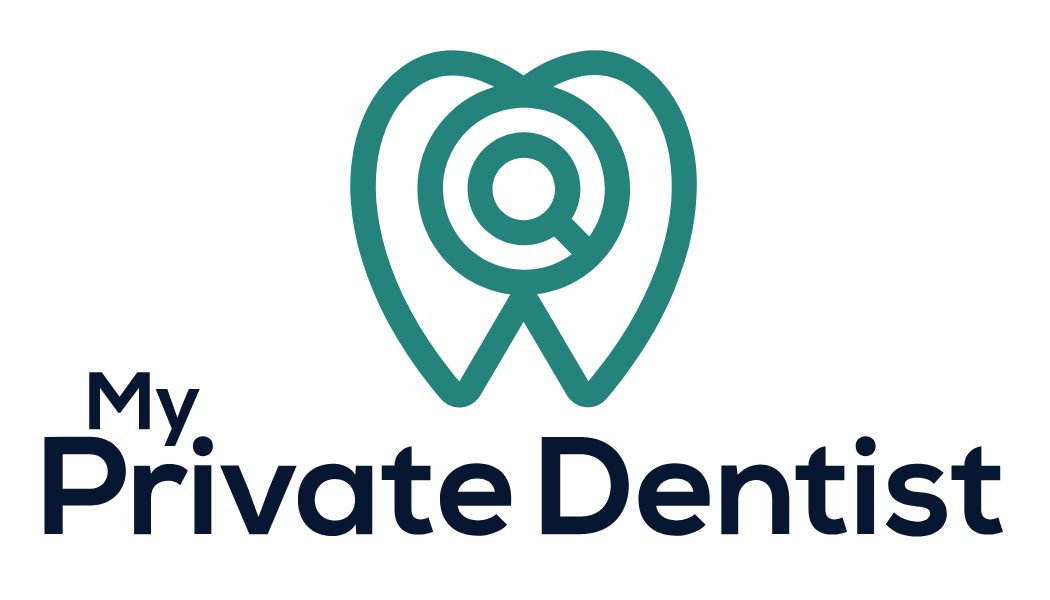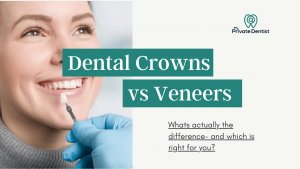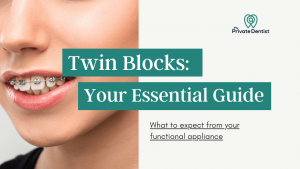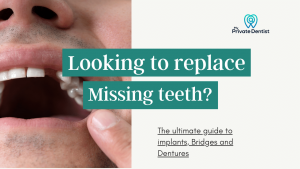These are my recommendations for the best retainer cleaners available in 2024.
As a dentist, I can’t stress enough, that if you want to keep your teeth straight after braces, you must wear your retainers every night. Having reviewed hundreds of patients with their retainers, I have noticed that many people don’t know how to clean them properly.
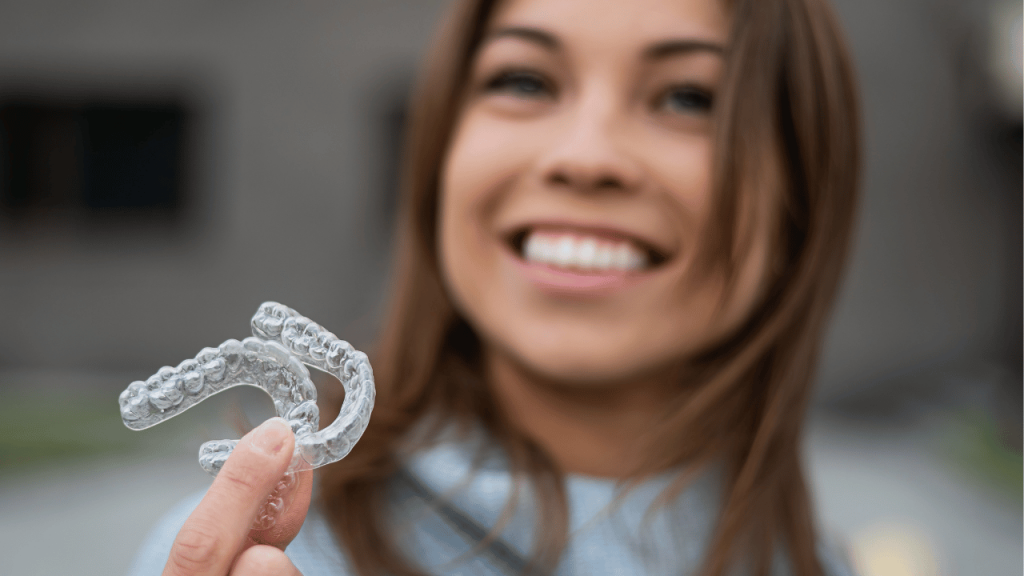
Some retainers are sparkling clean…though this could indicate that they aren’t being worn regularly. But all too often, retainers look stained and unsightly.
As retainers get a lot of wear, it’s important to look after them well. If they aren’t cleaned thoroughly and regularly, retainers can harbour bacteria and plaque. This means unpleasant smells, staining, and potential to cause illness/infection.
To keep your retainers hygienic, you need to store them safely when not wearing them, and clean them daily.
To prolong the lifespan of your retainers, I recommend an ultrasonic cleaner for daily disinfection, and dissolvable tablets at least once a week. The Zima Dental Pod is an ultrasonic cleaner that offers a gentle, yet thorough clean in just 5 minutes, with no risk of damage to your retainers. Adding Retainer Brite tablets to the Zima Pod, will keep your retainers tasting even fresher. Retainer Brite is cheap to buy, readily available and easy to use. Just a 15 min soak at least once weekly, thoroughly disinfects the retainer and can help to keep germs and unsightly stains at bay.
There are lots of products available for cleaning your retainers with 3 main groups: dissolvable tablets, ultrasonic baths and UV boxes. I have created this guide to help you find out what works well, and which products are worth spending money on. Read on what to look out for in the best retainer cleaner, and get some helpful tips on keeping your retainers looking good and working well.
The best retainer cleaners – as recommended by dentists
Why trust us? After helping thousands of patients over the last 10 years, we know what works. We can tell you what the gimmicks are, so you can maintain your oral health for the best value for money.
As dentists we understand the importance of a hygienically clean retainer for your oral health. Read on to find out the best retainer cleaner for you to use in 2024.
Our Top Picks
Best ultrasonic retainer cleaner : Zima Dental Pod
Best dissolvable tablets: Retainer Brite
Best travel-friendly retainer cleaner: DentaDenta Ultra Violet Steriliser
Best Ultrasonic Retainer Cleaner
Zima Dental Pod Ultrasonic Cleaning Machine
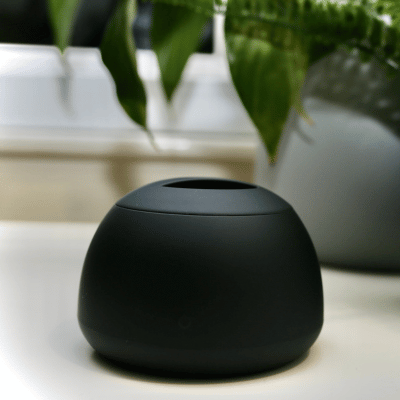
Why our dentists recommend this retainer cleaner
The Zima Dental Pod offers a superior clean, using ultrasonic waves for a deep disinfection of your retainer. With a cleaning time of only 5 minutes, this ultrasonic cleaner is super easy to use: simply add water (and optional effervescent tablet) to the pod, insert your retainers, and press the start button. With no need to brush your retainers after the cleaning cycle, the Zima pod prolongs the lifespan of your retainers. Brushing retainers, even with soft brush bristles can create micro-grooves on the surface of the retainers, which can harbour bacteria.
Suited for those that want long lasting retainers, the Zima Pod can be used daily with no risk of damage to the retainer, for a thoroughly hygienic clean.
Pros
Quick clean- 5 min
Auto shut-off
Easy to use – single button to activate
No brushing needed
Cons
Expensive (though cheaper than some alternatives)
Needs to be plugged in
Best Dissolvable Retainer Cleaner Tablets
Retainer Brite
Why our dentists recommend this retainer cleaner
I advise my patients to use Retainer Brite, at least once weekly, to clean and keep stains at bay. It is safe and gentle enough for daily use if you want to- though I usually advise an everyday rinse and clean with soap and toothbrush.
The one linked above comes with 96 tablets- thats a 3 month supply (longer if you alternate use of tablets with soap) . It also comes with a specifically designed box to soak and safely store your retainers in. The soft toothbrush is really handy to remove debris, without causing any damage to the retainer.
Retainer brite is extremely effective, removing 99.9% bacteria in just a 15 minute soak. After soaking, simply rinse under lukewarm water and then leave to dry.
Pros
Works in just 15 mins
Mild minty taste
Cheap
Cons
Not suitable if you have allergy to Persulfates
Best travel-friendly retainer cleaner
DentaDenta Ultra Violet Steriliser
Why our dentists recommend this retainer cleaner
I recommend the DentaDenta as a great additional accessory for cleaning your retainer when travelling. Although I don’t think it’s as good as the traditional tablets or ultrasonic baths for regular use, it offers a hygienic way to clean your retainer whilst you’re out, or unable to soak them.
This UV steriliser promises to kill 99.9% bacteria in just 10 minutes without the need for any chemicals. It won’t cause damage to your retainer, and also doubles up as a safe box to store retainers in when not wearing them.
Pros
No liquid required
Compact cleaning on the go
Powered by AA batteries
Cons
May not prevent staining of retainers over time
Not suitable to replace other liquid based methods of cleaning long-term
Buying Guide
After brace treatment, it’s essential to wear your retainer regularly if you want to keep your teeth straight. Retainers are a long term commitment – and so you’re going to need a foolproof way to keep your retainer clean and fresh.
There are lots of retainer cleaning products on the market including dissolvable tablets, ultrasonic baths and UV boxes. Regardless of the method, you want a retainer cleaner that will:
- Be safe to use, with no allergens or irritants
- Be tough on bacteria and germs on the surface
- Be gentle enough not to damage/erode the retainer over tine
In this guide, I’m going to go through the different types of retainer cleaner, to help you decide the best for you.
What Retainer Cleaners Are There And How Do They Work?
Effervescent Tablets
These are dissolvable tablets that you add to container of lukewarm water (not HOT), and then soak your retainers for 15-20 mins.
They are inexpensive, and work to remove debris and bacteria from your retainer. Ideally you should clean your retainer daily to keep them looking their best, and prevent them from harbouring harmful bacteria that could make you unwell.
Active Ingredients in Retainer Cleaners
- Sodium bicarbonate: A gentle abrasive that helps to remove plaque and stains from the retainer.
- Citric acid: a natural ingredient helping to remove plaque and stain.
- Sodium Percarbonate: An oxidising ingredient that gently removes staining. Common in effervescent tablets.
- Sodium perborate: a gentle antiseptic and bleaching compound
- Sodium Carbonate: A water softener that ensures the effectiveness of the retainer cleaner even if used with water high in mineral content.
- Potassium Persulfate Compound: A cleaning and bleaching agent. Can be a potential irritant, and should not be used if you have a persulfate allergy.
- Tetraacetylethylenediamine (TAED): A powerful bleaching agent and disinfectant to effectively clean retainers
Ultrasonic baths
Ultrasonic baths are used in dental surgeries to clean instruments. High frequency ultrasonic waves cause vibrations and millions of bubbles that will deep clean your retainers, disrupting and destroying debris and stain particles.
It’s a non abrasive and very effective way to clean your retainers, in as little as 5 minutes. For an even deeper clean, you could add effervescent cleaning tablets into the pods also.
Ultrasonic baths tend to be a lot more expensive than denture tablets, but for those that like gadgets and want to know that their retainer is thoroughly clean, these are a great option.
UV Sanitisers
Using ultraviolet light, these retainer cleaners are initially a more expensive investment, compared to a packet of effervescent tablets. Designed for daily use, and a way to keep your denture clean whilst on the go- simply place them in the container and switch it on for 10 minutes.
Offering a chemical and liquid free alternative to cleaning, UV sanitisers destroy bacteria and sterilise the surface of retainers, helping to keep bad smells and plaque at bay.
You may notice that UV sanitisers cannot prevent retainers staining over time, and so I wouldn’t advise their use as a complete replacement for the alternative cleaning methods.
UV sanitisers are compact, lightweight and need no additional products. I recommend their use whilst out during the day or for travelling, and looking to denture tablets/ ultrasonic baths for everyday cleaning.
DIY retainer cleaners
Soap and water
I often recommend using simple soap to clean retainers: hand/body soap or dish soap works just fine. Using a soft bristled toothbrush and some soap to gently clean the surfaces of the retainer. Rinse well under lukewarm water and then leave to dry upside down.
This is a great method, it’s cheap and it really works. Even still, I would encourage you to use a product cleaner once a week as well to prevent staining/discolouration over time and to keep your retainer looking it’s best.
Bicarbonate of soda/ baking powder.
Sodium bicarbonate is an ingredient commonly found in retainer tablets, to remove odour and plaque build up.
Make a paste with equal parts baking powder and lukewarm water. Using a soft bristled toothbrush gently clean the surfaces of the retainer using the baking powder solution. Rinse well and leave to dry.
Vinegar
Vinegar has natural antibacterial properties, and can help to clean your retainer. To use, soak your retainer for 20 mins in a solution of white vinegar and warm water. Remember to rinse well after soaking
This is not my advised method of cleaning, as vinegar can be strong smelling.
Essential Accessories for Retainer Cleaning
A secure (non-leaking) box: to soak retainers in, or for safely storing when not worn
A soft bristled toothbrush: It’s best to have a separate toothbrush just for cleaning your retainer. The bristles should be soft to make sure you don’t damage your retainer when cleaning
Retainer Hygiene Tips
If you wear your retainers during the day, always try to rinse them when you take them out
If you haven’t worn them for a few days, clean them again before placing.
If you have been unwell, make sure to clean/disinfect them thoroughly
Have a box to keep your retainer in when you aren’t wearing them- not only will this help to make sure you don’t lose them, it will keep them cleaner for longer.
Have a separate soft toothbrush just for your retainer
Use cold or lukewarm water when cleaning your retainer, If the water is too hot it can warp the retainer and affect it’s fit.
Place cleaned retainers upside down in the box to allow them to fully dry whilst theyre out of your mouth.
Be sure to clean your retainer box regularly as well
Look out for any cracks in your retainer that may mean its not fitting so well.
What NOT to do when cleaning your retainer
Don’t eat or drink anything with retainers in, except cold water
Don’t use hot water to clean your retainer, as this can warp them and affect their fit.
Don’t use them as bleaching trays to whiten your teeth. They are not appropriate for teeth whitening- retainers are made to be very close fitting to your teeth which means there isn’t enough room for whitening gel.
Avoid using toothpaste to clean the retainer. Toothpaste can be too abrasive and you can end up with marks/grooves in retainer. Similarly, avoid cleaning with mouthwash. It is antibacterial and will get retainer clean- but it is often coloured green/blue and this can start to discolour your retainer.
Keep your retainer well away from pets: dogs are notorious for liking to chew brace retainers!
Don’t wear your retainers during contact sports or swimming.
Frequently Asked Questions
How Often Do I Need To Wear My Retainer?
Retainers are a long term commitment, and if you want their teeth to remain straight after brace treatment- you should wear your retainer.
When first fitting the retainer, I advise full time wear for 8 weeks, taking them out only to eat/drink, or for any contact sports/swimming. You can drink cold water with your retainer in.
After the first couple months, switch to wearing your retainer at night. For the first year you should wear your retainer every single night. After this, you could wear them alternate nights. However, you should continue to wear your retainers on a regular basis indefinitely, to stop your teeth from drifting.
How Often Should I Clean My Retainers?
Retainers should be cleaned daily to keep them looking their best. I advise my patients to wear their retainers at night. In the morning they should rinse them with lukewarm water, and then brush them with a soft bristled toothbrush and hand soap/body soap. Once weekly I advise soaking them in a retainer tablet solution, such as Retainer Brite.
How Often Should I Replace My Retainers?
If looked after well, and worn regularly, your retainers should continue to fit well for 5 years or more. Your retainer only needs replacing if it’s lost, broken/worn or ill fitting. It’s a good idea to have yearly reviews of your retainer by a dentist to make sure it’s still working well. Wearing a poorly fitting or broken retainer is not a good idea, as your teeth may start to move position.
A few things to look out for as a sign that they need replacing:
- Any cracks or splits on the retainer, especially across the teeth
- A worn retainer. If you’ve had them for a long time, or if you grind your teeth you may need to replace them
- A loose fitting retainer
- An ill fitting retainer. If youve not worn your retainer, your teeth may have changed position and your retainer no longer fits. It may feel very tight or uncomfortable when wearing it. If this is the case you may need new ones making moulded to the position your teeth are in now. This will prevent your teeth from moving even further.
If you think you need new retainers, get some advice from your orthodontist, or find one here.
How Much Do Replacement Retainers Cost?
The price of replacement retainers can vary from practice and region. They generally range from £90-£130 per arch. If you think you may need a replacement retainer, you should visit an orthodontist for a consultation.
Can I Use Denture Cleaning Tablets On My Retainer?
In short, yes. The ingredients in denture cleaning tablets are very similar to those in retainer cleaning tablets, and are generally suitable for use. It may cause some discolouration if used long term, though if the tablets contain hydrogen peroxide this will help to keep them looking clear.
What Is The White Hard Build Up On My Retainer?
The white stuff accumulating on your retainer is actually calculus deposits from saliva in your mouth. It isn’t harmful but it can look unsightly. To prevent this build up, make sure you clean your retainer regularly and thoroughly.
Final Verdict
It’s important to look after your retainer well. Storing it safely when not using it, and cleaning it thoroughly makes sure you get the most out of your retainer. Keeping your retainer hygienically clean prevents bad smell, unsightly build up and reduces the chance of harbouring bacteria that could make you unwell.
We recommend the Zima Dental Pod as the best retainer cleaner in 2024. I advise my patients to use it daily, with an optional addition of dissolvable tablets. It is on the pricier side, but the investment is well worth it. It will keep your retainers in perfect condition, and thoroughly clean and fresh.
If you need a replacement retainer, or are thinking about brace treatment, find an orthodontist today.
